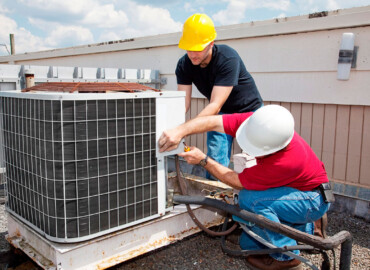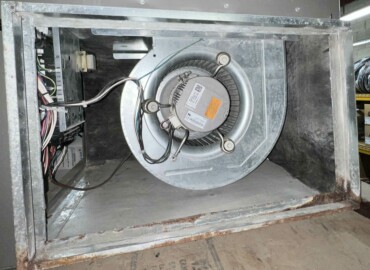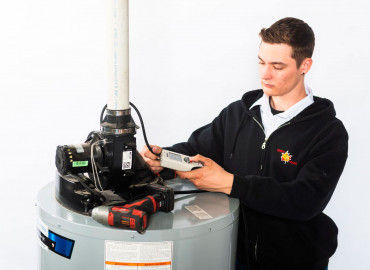Air Conditioner And Humidifier- All You Need To Know
There are frequently subtle and surprising interactions between appliances. It’s important to use caution if two or more devices attempt to do comparable tasks. It’s a common question among consumers to wonder whether they really need two devices or if they should use both simultaneously. The air conditioner and humidifier are the best examples of such a duo.
You can run a humidifier and an air conditioner simultaneously, but you won’t need to. If you live in a dry area, you may counteract the drying effects of your air conditioner by using a humidifier to provide moisture back into the air.
There are additional contexts in which you shouldn’t use them together, albeit the reasons may surprise you. To go further into this question, we need to know how humidifiers and air conditioners work and whether they can be used simultaneously.
What Does it Mean to Have an Air Conditioner?
Improving one’s comfort level is the primary function of an air conditioner. It does this by forcing hot air out of the building, which reduces the temperature within. At the same time, the refrigerant inside the device will change its state from liquid to gas to chill the air that is left.
After then, the fan unit will circulate these cooled air flows throughout the living area as the coils continue to take up the heat to keep the cycle going. A central air conditioning system can alter the temperature, humidity level, and overall air quality inside a living area using a process known as dehumidification.
What Exactly is a Humidifier?
The well-being of the individual as well as their level of comfort, may both benefit from the usage of a humidifier. Your home’s relative humidity will rise due to this appliance since it injects water and moisture into the air already present there.
The ambient heat in the air will be absorbed when there is more water, which will cause your rooms to have a warmer sensation. You can prevent your skin from becoming dry by using a humidifier, which may also alleviate discomfort in some parts of the body, such as the lips, throat, and nose.
What Are The Differences Between An Air Conditioner And A Humidifier?
The functions that humidifiers and air conditioners are designed to fulfill are opposed to one another. Thus it is not common practice to compare the two. But, there are a few key variations that you should be aware of about the functioning of each option.
An air conditioner’s primary function is to bring the temperature within a building down by extracting the humidity and heat from the air inside a room and expelling it into the surrounding environment. The device will first filter out the hot air, and then it will chill the air that is left behind before distributing it around your house. Dehumidification is when an air conditioning unit reduces the amount of moisture in a given space.
On the other hand, a humidifier is mainly used for reasons related to one’s health and raises the relative humidity level inside your room. Keeping your skin nourished and preventing it from drying out may be helped by maintaining a specific moisture level. Humidifiers have several side effects, one of which is the regulation of temperatures.
In What Ways Is a Humidifier Useful?
Humidifiers help you maintain a comfortable relative humidity level in your house. The term “humidity” refers to the quantity of water vapor in the air. Dry air may irritate your eyes and throat and even cause you to lose fluids if the humidity levels are deficient. Lethargy and hyperthermia may result from exposure to the high levels of atmospheric moisture accompanying high humidity. The goal of a humidifier is to maintain a comfortable level of water in the house.
Humidifiers come in many forms, but they always have one essential feature: a water reservoir from which they pull moisture to increase the air’s humidity. Evaporative humidifiers, impeller humidifiers, steam humidifiers, and ultrasonic humidifiers are the most common. Whole-house and portable humidifiers are effective solutions for controlling humidity in your home.
Humidifiers are available in both portable and whole-house varieties. In contrast to portable ones, whole-house humidifiers are installed alongside HVAC units and transfer moisture through the ductwork.
How Are AC Units Useful?
While doing its job, your air conditioner also eliminates moisture from the air, which you may or may not know. Your air conditioner is the primary cause of the dry atmosphere in your house.
The warm air in your house is drawn into the HVAC system and then circulated over the evaporator coils, where the refrigerant extracts the heat and moisture. The vents send the dryer, cooler air back into your home.
In a humid environment, homeowners would appreciate this moisture reduction feature. When humidity levels are excessively high, it may be difficult for sweat to evaporate, thus making you feel hotter than you are. Moreover, an abundance of moisture leaves your home feeling wet and unwelcoming.
If you live in a very arid region, like the desert, eliminating humidity from the air will have the opposite effect, drying out your house to unhealthy levels. This won’t only make you miserable, but it may also ruin your furniture and carpets. When you add together all these problems, you quickly realize that achieving the ideal humidity level requires carefully coordinating your tools.
Humidifier and Air Conditioner Use: When to Combine Them
When deciding whether or not to use a humidifier in addition to an air conditioner, knowing what the ideal relative humidity is in a given space is essential. The ideal relative humidity for a residence is between 35 and 55 percent. A hygrometer may be used to monitor the relative humidity in a room.
You may also go with your gut. If your house becomes too dry from the air conditioner, you may experience dryness and itching on your skin. Dry air may aggravate conditions, including headaches, nosebleeds, chapped lips, itchy eyes, and irritated sinuses. Your house’s wood and other materials might dry up and fracture if the humidity is below 50 percent. An average level of moisture is essential for your home.
Why Using AC And Humidifier At the Same Time Is Inappropriate?
If you don’t need to use the humidifier or the air conditioner, don’t run them. One gadget adds moisture to the atmosphere while the other removes it, so they fight each other. Appliances wear out faster due to the constant tugging and pushing. Humidifiers should be used sparingly only when the air is arid.
In the summer, for instance, the air is less dry than in the winter, so you won’t need to run the humidifier as often. Specific versions of air conditioning can be purchased nowadays that come outfitted with additional components that may function as either a dehumidifier or a humidifier. They will save you the trouble of utilizing several units while still guaranteeing that your home maintains an appropriate temperature and humidity level for your needs.
Do Home Air Conditioners Remove Moisture From The Air?
Even if it is in good working order, the air conditioner won’t be able to remove all of the humidity from the house. After all, it was conceived to carry out a different function. It is now obvious why anything like this takes place. Although air conditioners do a good job of cooling the air, they often leave it dry.
This is especially true during the hot summer months when the air conditioner is always operating to keep the house at a comfortable temperature. Since you have a condensate pan and line, your rooms will remain dry at all times. When operating, the cooling mechanism of the air conditioner takes in a significant amount of moisture, lowering the air quality and making it more difficult to maintain a pleasant temperature.
Can You Use Humidifier With Air Conditioner?
Many people think a humidifier is unneeded in summer or winter since the air humidity is so high. Humidifiers in summer and winter? An air-conditioned room is better than a dry one. Air humidifiers make air-conditioned rooms more pleasant. Air conditioners condense water into droplets that leave the room dry.
Air conditioners diminish indoor air humidity and accelerate body water evaporation. Heat opens pores. The air conditioner and fan directly hit individuals, producing colds, fevers, and backaches. While utilizing an air conditioner, a home humidifier may increase indoor humidity, minimizing skin water loss and dry throat. A humidifier cleans the air, removes dust, and keeps noses moist.
Conclusion
Although your air conditioner may be working overtime this summer to keep your home comfortably cool, it may also contribute to air dryness. If the air is arid, a humidifier might be added to the mixture. Hope you learn when and how to use your air conditioner and humidifier together for maximum efficiency using the information provided below.
The air conditioner in your house works hard all summer to keep it cool, but it also has the potential to dry out the air. In extreme cases, a humidifier might be used to combat the air’s dryness. When used properly, a humidifier may significantly enhance the performance of your air conditioner. To know more about which is best, consult the professionals of Smile HVAC. They offer professional advice on choosing the best as per your needs.



